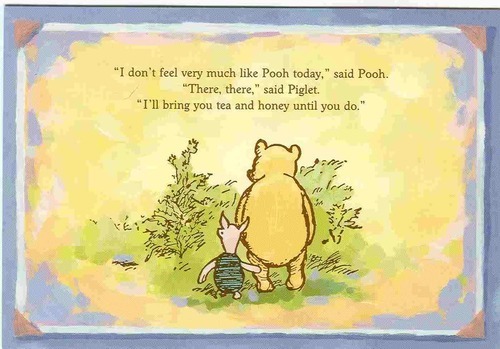
Anxiety & Depression in children

Depression and anxiety in children
Just like adults, children have worries and anxieties. There are many things that can affect a child, and at different ages. While these are a normal part of growing up, if it’s starting to affect their overall health and well-being, extra support may be needed.
Anxiety is the feeling of fear or panic. Most of us when worried about something, like an exam or presentation, will calm down and feel better after the event is over. But for some people, this feeling doesn’t go away. When the panic stays or grows even stronger, anxiety can become a problem. For children, this can be very scary and confusing.
According to Young Minds, one in six young people will experience anxiety.
Up to five people in a school classroom may be living with some form of anxiety.
On this page
Anxiety in children
Anxiety in children becomes a problem when it affects their daily life. Because it’s a normal reaction, a parent may not know what their child is feeling, and so the severity of the anxiety is not always clear. Also, there are many times a child will experience anxious feelings throughout their childhood. For example, between eight months to three years, separation anxiety is common. This is, however, a normal stage in a child’s development, and tends to ease off at around two years. It’s when the feelings don’t go away that further steps need to be considered.
Young children experiencing anxiety may not understand their feelings, or know how to express them, so it’s important you know the signs to spot. Signs of anxiety in children include:
- irritable, clingy or tearful behaviour
- difficulty sleeping or waking in the night
- nightmares
- lack of confidence
- lack of concentration
- loss of appetite
- avoiding everyday activities, like socialising or going to school
Depression in children
Depression is a mood disorder which often develops alongside anxiety. While it’s normal to feel down some of the time, when sad thoughts are lasting a long time or stopping someone from enjoying life, it can help to talk to someone – like a professional.
Depression is one of the most common mood disorders. In fact, the NHS suggests that almost one in four young people will experience depression before the age of 19.
Many signs of depression are similar to when a person feels sad, so it can be difficult to know when there is a problem. But if you think your child is depressed, it’s important to seek help as early as possible. Common signs of depression in children include:
- sadness, or low mood lasting a long time
- being irritable or grumpy
- they’re always tired
- having trouble sleeping
- isolating themselves from friends and family
- low confidence
- talking about feeling worthless or guilty
Some children may also show physical symptoms, such as feeling sick or headaches.

Other mental health problems
It’s common for those experiencing depression to be experiencing another mental health problem. Coping with a mental health problem can be extremely difficult and affect a person’s life greatly, so it’s often thought this can trigger depression. Mental health problems linked to depression and anxiety may include:
Eating disorders – Some people have problems with eating and may use food as a way to deal with difficult emotions. Eating disorders are different. They are complex mental illnesses that require specialist treatment. Young women (aged 12 to 20) are more likely to develop an eating disorder, but anyone, regardless of age or gender, can develop one. While serious, eating disorders are treatable and full recovery is possible.
Self-harm – Self-harm is purposely causing yourself harm, usually as a way to cope with difficult emotions. It’s said that the majority of those who self-harm are aged between 11 and 25, but anyone can be affected. While the cycle of self-harming can be difficult to stop, help is available.
Obsessive-compulsive disorder – OCD is an anxiety-related condition, where people have obsessional thoughts, followed by compulsive urges. People can experience OCD differently, and at varying severity. It can leave you feeling helpless, and as if it’s taking over your life. However, treatment is available and there are methods you can learn to help you cope.
What can you do to help your child
If you think your child may be depressed, or experiencing anxiety, it’s important you talk to them. They may not understand what they’re feeling or know how to talk about it, but reassure them that you’re there and that they can talk to you when they’re ready.
Don’t judge what they say, or make it seem like it’s not important. Whatever is causing the problem is affecting them, so take it seriously. Then, together you can talk about overcoming the problem. Reassure them that it’s OK and they won’t feel like this forever.
If they don’t want to speak to you, let them know you’re there if they need you, but encourage talking to someone else. Speaking to someone they trust – outside of their immediate family – can be just as beneficial. Suggest talking to a friend, a grandparent, or a teacher. If you’re worried about their health, make an appointment with your GP. They can access the situation, speak to your child and if necessary, refer your child for specialist help.
For younger children, look at how they’re playing. Children may find it difficult to express themselves verbally, but they’re masters at expressing themselves through play. If they’re particularly stressed or upset for example, you may notice lots of fighting with their toys. Ask them about this – observing their play and commenting on the fights can help your child to open up and help you understand what’s bothering them.
Free resources for anxious kids
We’ve teamed up with Happiful Kids to create some free resources for parents, teachers and of course kids themselves to get a handle on anxiety. Take a look through our guides, activities and articles which all aim to support children struggling with worries and anxiety.
Activities:
- How to use the worry tree – an explanation for kids
- Worry tree activity
- Worry tree activity (coloured)
- Mindful colouring bookmarks
Resources:
- Anxiety in children – a factsheet for parents
- Anxiety in children – a factsheet for teachers
- Worries and anxiety – a factsheet for kids
- Happiful kids Youtube – anxiety playlist
- Explaining Anxiety (comic)
- Let your worries fly free (comic)
- Relax with mindful colouring (comic)
Articles:
- Can mindful colouring help calm anxious kids? (article)
- Five must-read books for anxious kids (article)
Videos:
- Get Kids Talking About Anxiety with a Worry Tree
- Help Kids Relax with Mindful Colouring
- Explaining Anxiety and Worries to Kids Using Worrypuffs
With thanks to Jacqueline Van Roosmalen for her support and guidance in the creation of our children’s resources.
Counselling and further support
Sometimes, talking about how they feel is enough to make someone feel less overwhelmed. But if your child’s health is being affected – both mentally and physically – then further support may be needed.
As a parent, or someone who cares for this child, it’s difficult to accept that extra support is needed, but it’s OK. Reaching out for support is admirable and nothing to be ashamed of. If you’re worried about your child, you will take the necessary steps to help them enjoy life again – sometimes, this means talking to a counsellor.
A counsellor is someone who can listen to how your child feels. They can help them understand the emotions and teach them the steps to cope.
Learn more about child counselling.


